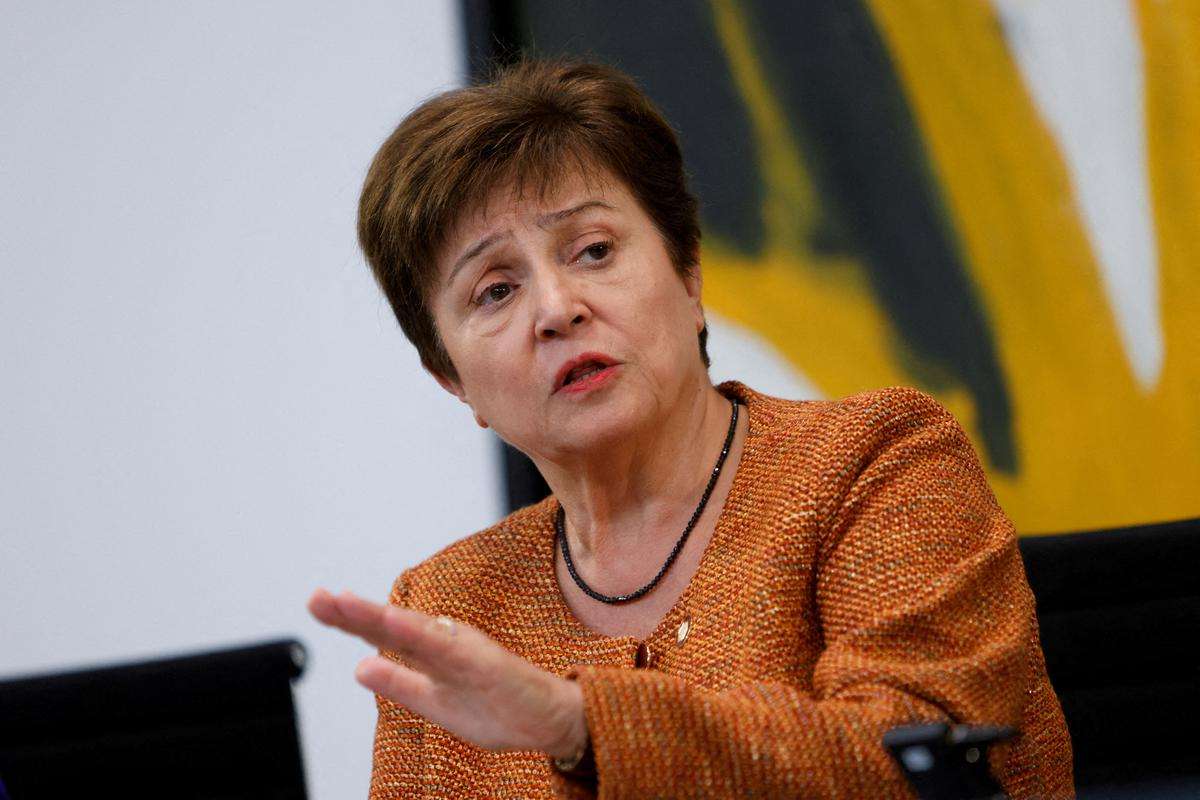The International Monetary Fund (IMF) on Saturday called for ‘timely and orderly processes’ under common framework with regards to Sri Lanka’s debt resolution. The island nation faced severe economic crisis which resulted in high debt.
In a statement issued after conclusion of G20 Finance Ministers and Central Bank Governors (FMCBG) meeting under India’s presidency, IMF Managing Director Kristalina Georgieva strongly endorsed efforts to strengthen the debt architecture and improve the speed and effectiveness of debt resolution, keeping in mind rising debt vulnerabilities in many countries. Sovereign debt vulnerabilities, which were already in an elevated state before the pandemic, have been exacerbated by the shocks stemming from Covid-19 and Russia’s war against Ukraine. This is particularly the case for developing and low-income countries with very limited policy space and huge development needs, she added.
During 2020, in order to strengthen debt architecture, the G20 initiated Debt Service Suspension Initiative (DSSI) and established the Common Framework (CF) for debt resolution. “It is now critical to complete Zambia’s debt restructuring, establish a Creditor Committee for Ghana and advance work with Ethiopia. Nonetheless, more predictable, timely and orderly processes are needed both for countries under the CF and for those not covered by it, including Sri Lanka and Suriname,” she said.
She reminded of global growth slowdown in 2023. She also recalled from her previous blog that too many people in too many countries are struggling to make ends meet. Keeping this in mind, the international community, has a responsibility to come together to find solutions for the most vulnerable members of global family. “This calls for urgent action to strengthen the international financial architecture, especially in the area of debt resolution and strengthening the global financial safety net,” she said.
Considering the great uncertainty and repeated turbulence in the global economy, she emphasised on further bolstering the IMF’s capacity to support its members. This applies most urgently to its concessional financing for low-income countries through and Poverty Reduction and Growth Facility (PRGT). Demand for PRGT support has reached unprecedented levels and can only be met if matched by an increase in PRGT loan and subsidy resources. In addition, a successful quota review — which the IMF’s membership has committed to complete by December 2023 — is critical for a strong Global Financial Safety Net.
“The latter has always been important for global stability and is even more important in today’s challenging global environment, especially for the most vulnerable countries and people. Our common interest is to secure a well-functioning and integrated global economy, for the sake of a more secure and prosperous world,” she said.
Source – Daily Mirror





